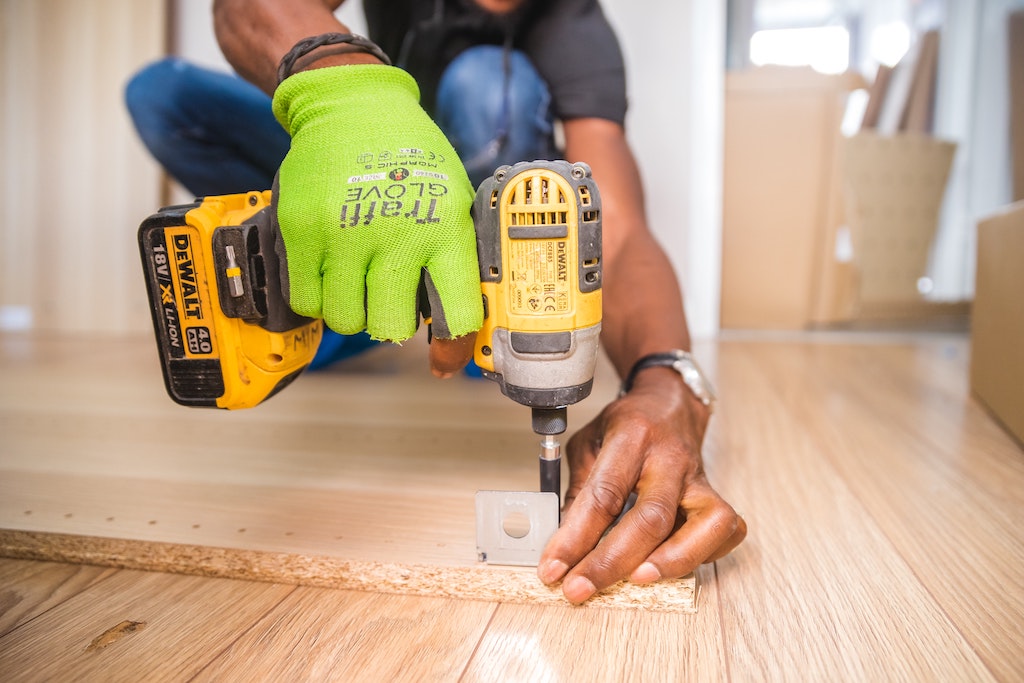As a homeowner, wanting to make repairs and improvements around your property is natural. From fixing a leaky faucet to installing new shelves, there are many tasks that you can handle on your own. However, you may need to call in a handyman for assistance when it comes to more complex projects. But does a handyman need a license? The short answer is that it depends on where you live and the work the handyman will perform. In some states and cities, a license is required for anyone who works as a handyman, while in other areas, there are no specific licensing requirements.
If you’re thinking about hiring a handyman or starting a handyman business yourself, it’s important to understand the licensing requirements in your area. In this blog post, we’ll explore the question of whether a handyman needs a license, and what you need to know if you’re considering this line of work.
What is a handyman?
Before diving into handymen licensing requirements, let’s first define what a handyman is. In general, a handyman is someone who performs a variety of small repairs and maintenance tasks around a home or business; a skilled person capable of performing various tasks related to home maintenance, repair, and improvement. This includes everything from fixing leaky pipes to hanging shelves and painting walls.
They may have formal training in these areas or have learned their skills through years of experience in carpentry, plumbing, electrical work, painting, and general maintenance.
Some handymen work independently, while others are employed by companies that specialize in home repairs and maintenance. Many handymen offer their services on a freelance basis, taking on individual projects as they come up. Homeowners or property managers often hire them to complete a variety of tasks that may be too small or specialized for a general contractor or construction crew.
In short, a handyman is a versatile and skilled worker who is able to tackle a wide range of tasks related to home maintenance and improvement.
Licensing requirements for handymen
Now that we know what a handyman is, let’s explore the licensing requirements for this line of work. As mentioned earlier, the requirements for licensing can vary depending on where you live and the type of work that the handyman will be performing. The licensing requirements for handymen can vary depending on the state or country in which they operate. In some areas, handymen may be required to hold a specific license; in others, they may not require any special licensing or certification.
Generally, if a handyman performs work requiring a specialized license, such as electrical or plumbing work, they will need to hold that specific license. For example, if a handyman is installing a new water heater, they will need to have a plumbing license to do the work legally.
However, no specific license is required for handymen who perform general home repairs and maintenance in many states and cities, so, if a handyman is simply repairing drywall or replacing a light fixture, they may not need to hold any type of specialized license. Although a handyman may not need a specific license, they may still need to register their business or obtain a general contractor’s license to operate legally. This will depend on the laws in your area, so it’s important to research the specific requirements where you live.
Guidelines for licensing requirements for handymen:
- Check your state or country’s licensing requirements: Research the requirements for becoming a licensed handyman in your area. You can typically find this information on your state or country’s licensing board website.
- Determine if a license is required: Depending on where you are located, you may or may not need a license to work as a handyman. Some states or countries may have specific licensing requirements for handymen, while others may not.
- Consider obtaining certification: Even if a license is not required, obtaining certification can help you demonstrate your skills and expertise to potential clients. You can pursue certification through organizations such as the National Association of Home Builders (NAHB) or the National Center for Construction Education and Research (NCCER).
- Obtain necessary insurance: Regardless of licensing requirements, having the proper insurance coverage as a handyman is important. This may include liability insurance, workers’ compensation insurance, and other types of coverage.
- It’s important to note that the requirements for licensing and certification for handymen can vary depending on the area in which you operate. Be sure to research the specific requirements for your location and take the necessary steps to obtain any required licenses or certifications.
Benefits of licensing for handymen
There are many benefits to obtaining a license as a handyman. Holding a license can give potential clients peace of mind that you are qualified and competent to perform the work they need to be done. In addition, obtaining a license can help you stand out from other handymen in your area who may not have taken the time to get licensed. This can be especially beneficial if you’re trying to grow your business and attract new clients.
Another advantage of obtaining a license is that it can help protect you legally if something goes wrong on a job. For example, if you accidentally cause damage to a client’s property, having a license can help you demonstrate that you were qualified to perform the work and that you took all necessary precautions.
Benefits to handymen obtaining a license:
- Legitimacy and Credibility: Being licensed adds legitimacy to the handyman’s business and credibility to their skills and services. Customers are more likely to trust and hire licensed handymen, which can result in increased business opportunities and revenue.
- Legal Protection: A license protects handymen from legal issues arising from working without proper certification or permits. If a handyman is licensed, they are held accountable for following rules and regulations set by local authorities and can avoid costly penalties and fines.
- Access to More Opportunities: A license can open up more opportunities for handymen to take on larger projects, work for commercial clients or bid on government contracts. Some contracts require proof of licensing before considering a candidate, so having a license can be necessary.
- Competitive Advantage: Being licensed can also give handymen a competitive advantage over unlicensed competitors. Customers are more likely to choose a licensed handyman over an unlicensed one, especially if they are competing for the same job.
- Higher Earnings: A licensed handyman can charge higher rates for their services, as they have demonstrated their expertise and professionalism through obtaining the license. This can result in higher earnings and a better return on investment for the handyman’s business.
How to obtain a license as a handyman
The requirements for obtaining a license as a handyman can vary depending on the state or country you are in. Here are some general steps you can take after checking your state or city’s licensing requirements:
- Complete any required education or training: Some states or countries require certain education or training before you can become licensed. This may include completing a handyman course or apprenticeship program.
- Gather necessary documentation: You will likely need to provide documentation such as proof of insurance, proof of completion of education or training, and a criminal background check.
- Submit your application: Once you have completed all of the necessary steps, you can submit your application for a handyman license.
- Pass any required exams: Some states or countries may require you to pass an exam before you can become licensed. Make sure to study and prepare for the exam thoroughly.
- Pay any required fees: There may be fees associated with obtaining your handyman license. Be sure to check what fees apply in your area and make sure to pay them on time.
- Renew your license: Once you have obtained your handyman license, you will typically need to renew it on a regular basis. Be sure to keep track of when your license is up for renewal and complete the necessary steps to renew it on time.
To sum up, whether a handyman needs a license or not depends on various factors, including the type of work they undertake, the state or local regulations, and the level of expertise and experience they possess. It is important for both handymen and homeowners to research the licensing requirements in their area before hiring or offering services. Ultimately, a license can provide credibility, assurance of quality work, and protection for both parties involved in the transaction. However, even without a license, a skilled and reliable handyman can provide valuable services to homeowners and businesses alike.




